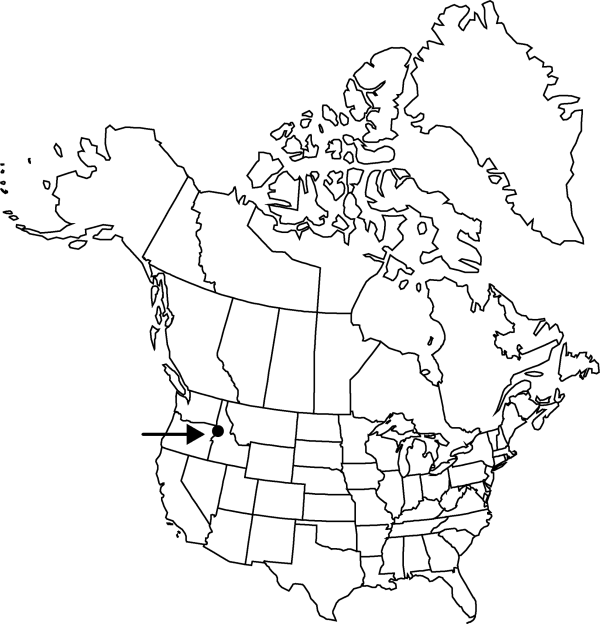Mirabilis macfarlanei
Proc. Biol. Soc. Wash. 49: 148. 1936.
Herbs, forming hemispheric clumps 6–8 dm diam., glabrous or sparsely puberulent. Stems 6–10 dm. Leaves spreading; petioles of proximal leaves 1–2.5 cm; blades of midstem leaves suborbiculate to widely ovate, 3.5–5 × 3–5 cm, base obtuse to cordate, symmetric, apex obtuse to rounded, rarely acute. Involucres: peduncle 4–25 mm; involucres erect or ascending, 13–23 mm; bracts 5, 50% connate, 15–20 mm, apex acute to widely ovate. Flowers 6 per involucre; perianth magenta, funnelform, 1.5–2.5 cm. Fruits light brown, with 10 slender ribs visible when wet, widely obovoid to ellipsoid, 6–7.5 mm, tuberculate, glabrous or very sparsely puberulent, secreting mucilage most abundantly on ribs when wetted.
Phenology: Flowering late spring.
Habitat: Exposed slopes in canyons
Elevation: 400-500 m
Discussion
Of conservation concern.
Mirabilis macfarlanei is in the Center for Plant Conservation’s National Collection of Endangered Plants.
Selected References
None.
